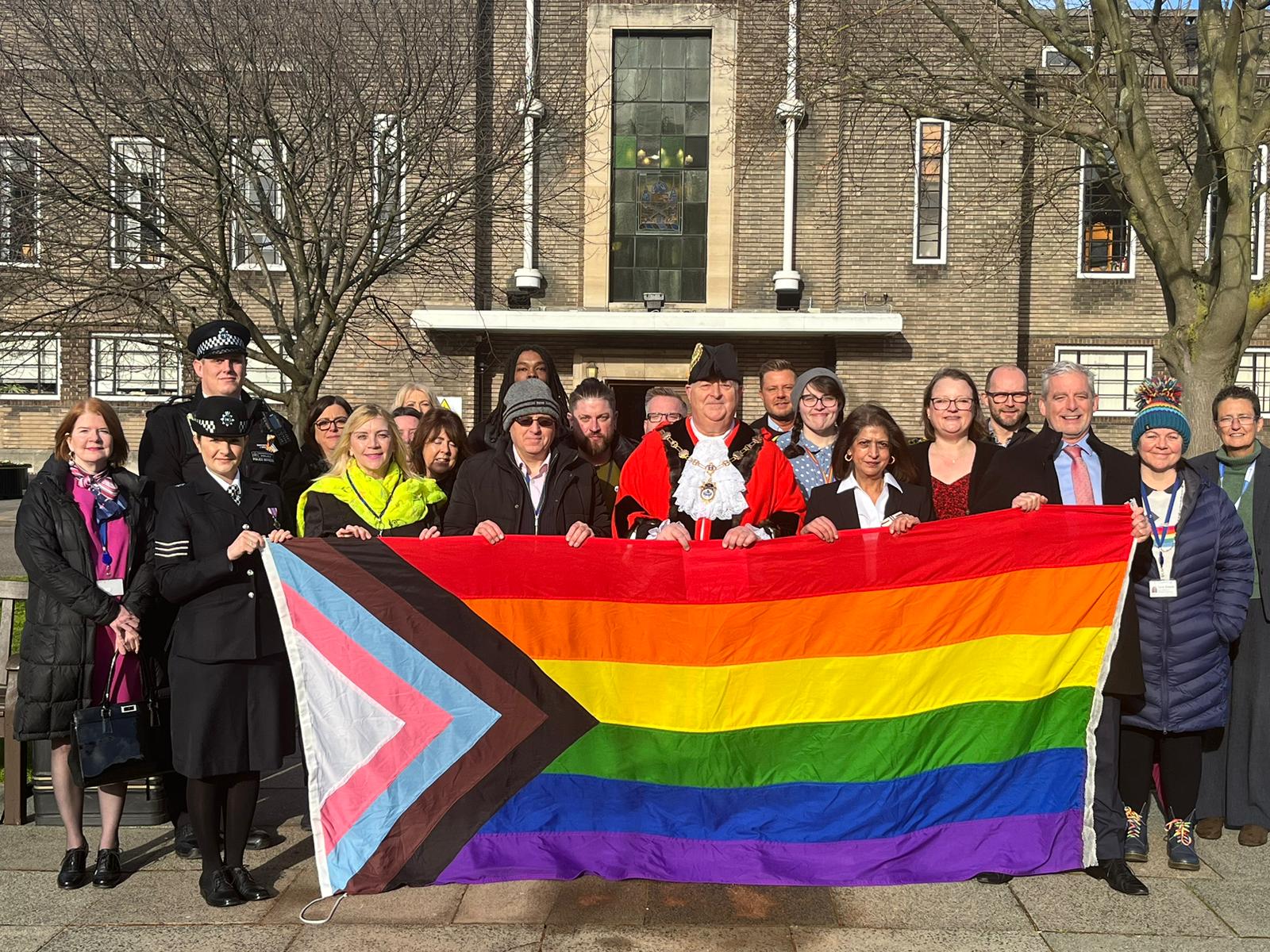Remembering The LGBT+ Legal Titans: A History Of Progress

Table of Contents
Early Pioneers and the Fight for Decriminalization
The early fight for LGBT+ rights was fraught with legal obstacles, primarily the criminalization of homosexuality. Many courageous individuals and organizations laid the groundwork for future legal challenges, paving the way for the monumental shifts we see today.
The Mattachine Society and the Daughters of Bilitis
These pioneering organizations, formed in the 1950s, played a pivotal role in early LGBT+ activism. While direct legal challenges were limited due to the pervasive societal stigma and legal restrictions, they employed crucial strategies:
- Education and Awareness: They worked to educate the public about homosexuality, challenging harmful stereotypes and misconceptions.
- Community Building: Creating safe spaces for LGBT+ individuals was essential for building strength and fostering collective action.
- Early Legal Defense: They provided support and resources to individuals facing legal persecution, though formal legal challenges were often risky.
Their efforts, however subtle, laid the groundwork for future, bolder legal actions. They challenged the deeply ingrained societal prejudice that fueled discriminatory laws.
The Stonewall Riots and their Legal Aftermath
The Stonewall Riots of 1969 served as a watershed moment, galvanizing LGBT+ activism and significantly influencing subsequent legal battles. The uprising sparked a surge in visibility and the formation of numerous LGBT+ rights organizations.
- Increased Activism: The riots propelled LGBT+ activism into the mainstream, leading to the formation of more organized and politically active groups.
- Formation of Legal Organizations: The increased visibility of LGBT+ issues led to the creation of legal organizations and advocacy groups specifically dedicated to LGBT+ rights.
- Key Figures: Individuals like Marsha P. Johnson and Sylvia Rivera, although often overlooked in early historical accounts, played vital roles in the riots and the subsequent activism.
Stonewall’s legacy is not only about the riots themselves but the sustained activism and legal groundwork that followed, transforming the landscape of LGBT+ advocacy.
Landmark Legal Cases that Changed the Landscape
Several landmark legal cases fundamentally reshaped the legal landscape for LGBT+ individuals. These cases, fought by dedicated lawyers and activists, represent pivotal moments in the ongoing struggle for equality.
Bowers v. Hardwick (1986) and its Overruling
Bowers v. Hardwick (1986) upheld the constitutionality of anti-sodomy laws, representing a significant setback for LGBT+ rights. This decision fueled further activism and laid the foundation for the eventual overturning of the ruling.
- Legal Arguments: The case centered around the right to privacy, with the majority opinion arguing that there was no constitutional protection for homosexual sodomy.
- Consequences: Bowers legitimized discrimination and reinforced negative societal attitudes towards LGBT+ individuals.
- Overruling in Lawrence v. Texas (2003): Lawrence v. Texas overturned Bowers, recognizing the right to privacy for same-sex couples and invalidating sodomy laws nationwide. This victory was a direct result of decades of activism and legal challenges.
Romer v. Evans (1996) and the Fight Against Discrimination
Romer v. Evans addressed the issue of anti-discrimination laws, specifically challenging a Colorado constitutional amendment that prohibited the enactment of laws protecting LGBT+ people from discrimination.
- Legal Arguments: The Supreme Court ruled that the amendment violated the Equal Protection Clause of the Fourteenth Amendment, marking a significant victory in the fight against discrimination.
- Impact: This ruling established a critical legal precedent for future challenges to discriminatory laws at the state and local levels.
- Types of Discrimination Addressed: The case focused on discrimination in employment, housing, and public accommodations.
Obergefell v. Hodges (2015) and the Right to Marriage Equality
Obergefell v. Hodges (2015) legalized same-sex marriage nationwide, a landmark victory achieved after years of legal battles and activism.
- Arguments Presented: The case centered around the Fourteenth Amendment's Due Process and Equal Protection Clauses, arguing that denying same-sex couples the right to marry violated these constitutional rights.
- Supreme Court Ruling: The Supreme Court ruled that the fundamental right to marry is guaranteed to same-sex couples by both the Due Process Clause and the Equal Protection Clause of the Fourteenth Amendment.
- Ongoing Challenges: Despite this victory, legal battles continue regarding religious exemptions and other challenges to marriage equality.
Contemporary LGBT+ Legal Challenges and Future Titans
The fight for LGBT+ equality continues, with new challenges emerging and requiring fresh legal strategies.
The Fight for Transgender Rights
The transgender community faces ongoing legal battles concerning bathroom access, healthcare access, and discrimination based on gender identity.
- Key Cases: Several cases have challenged discriminatory laws and policies targeting transgender individuals, particularly concerning bathroom access and participation in sports.
- Ongoing Legislation: Many states are actively debating legislation that seeks to limit or restrict the rights of transgender individuals.
- Role of Transgender Activists: Transgender activists and their legal allies are instrumental in driving these legal challenges.
Issues of Intersectionality
The legal experiences of LGBT+ individuals are shaped by intersecting factors of race, class, gender, and other identities.
- Specific Cases: Legal cases highlighting the unique challenges faced by LGBT+ individuals at the intersection of multiple marginalized identities are increasingly important.
- Strategic Considerations: Legal strategies must account for the complex interplay of these intersecting factors to ensure equitable outcomes.
- Need for Inclusive Advocacy: Recognizing and addressing intersectionality is vital for effective LGBT+ legal advocacy.
The Next Generation of LGBT+ Legal Advocates
The next generation of LGBT+ legal advocates is facing emerging legal issues, including issues related to reproductive rights, technology and privacy, and international human rights.
- Organizations Leading the Way: Numerous organizations are dedicated to furthering LGBT+ legal rights and providing resources to emerging advocates.
- Challenges and Opportunities: This new generation will need to address issues of increasing complexity while facing significant political and social opposition.
- Importance of New Voices: Diverse voices and perspectives are vital to ensuring a comprehensive and inclusive approach to advancing LGBT+ rights.
Conclusion
Remembering the LGBT+ Legal Titans is essential to understanding the significant progress made in LGBT+ rights. These individuals, through tireless activism and groundbreaking legal battles, have transformed the legal and social landscape. From the early pioneers who laid the foundation to the contemporary advocates leading the way, their contributions represent a legacy of courage, resilience, and unwavering commitment to equality. Let us continue to celebrate their victories and learn from their struggles. To honor their legacy, we must actively support LGBT+ organizations, participate in advocacy efforts, and remain vigilant in the ongoing fight for full equality. By remembering LGBT+ legal pioneers and celebrating LGBT+ legal victories, we can ensure that the movement continues to flourish and that future generations can benefit from their hard-fought progress.

Featured Posts
-
 Capital Summertime Ball 2025 A Guide To Ticket Acquisition
Apr 29, 2025
Capital Summertime Ball 2025 A Guide To Ticket Acquisition
Apr 29, 2025 -
 Willie Nelsons Oh What A Beautiful World Album Details
Apr 29, 2025
Willie Nelsons Oh What A Beautiful World Album Details
Apr 29, 2025 -
 Police Raid Underground Nightclub 100 Immigrants Detained Video Shows
Apr 29, 2025
Police Raid Underground Nightclub 100 Immigrants Detained Video Shows
Apr 29, 2025 -
 Silver Lake Investment Fuels Khaznas Saudi Data Center Expansion
Apr 29, 2025
Silver Lake Investment Fuels Khaznas Saudi Data Center Expansion
Apr 29, 2025 -
 The Treasury Market On April 8th A Comprehensive Review
Apr 29, 2025
The Treasury Market On April 8th A Comprehensive Review
Apr 29, 2025
Latest Posts
-
 Nespodivane Roztashuvannya Chomu Tramp I Zelenskiy Sidili Okremo Na Zustrichi
Apr 30, 2025
Nespodivane Roztashuvannya Chomu Tramp I Zelenskiy Sidili Okremo Na Zustrichi
Apr 30, 2025 -
 Gallikes Epixeiriseis I Apantisi Stin Ekklisi Toy Le Maire Gia Antimetopisi Ton Dasmon Trump
Apr 30, 2025
Gallikes Epixeiriseis I Apantisi Stin Ekklisi Toy Le Maire Gia Antimetopisi Ton Dasmon Trump
Apr 30, 2025 -
 Raskryta Prichina Pochemu Tramp I Zelenskiy Sideli Otdelno Na Vstreche
Apr 30, 2025
Raskryta Prichina Pochemu Tramp I Zelenskiy Sideli Otdelno Na Vstreche
Apr 30, 2025 -
 Pokhorony Papy Rimskogo Tramp I Zelenskiy Mogut Vstretitsya
Apr 30, 2025
Pokhorony Papy Rimskogo Tramp I Zelenskiy Mogut Vstretitsya
Apr 30, 2025 -
 Zustrich Trampa Ta Zelenskogo Chomu Voni Sidili Okremo
Apr 30, 2025
Zustrich Trampa Ta Zelenskogo Chomu Voni Sidili Okremo
Apr 30, 2025
